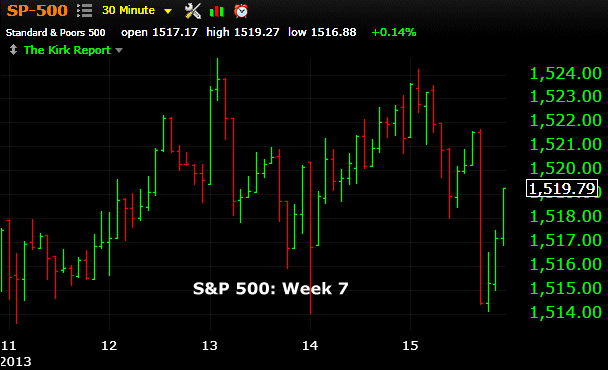The Need For Conviction And Patience
NOTE: Every week or two I wrote a Client Note for my clients. I post the notes to my blog but with a time delay usually between 1 day and 1 week. To receive the Client Notes at the same time as my clients, sign up in the box in the right hand corner of the website.
*****
Jason Zweig wrote an important article about the great value investor Jean Marie Eveillard in this weekend’s Wall Street Journal (“Value Stocks Are Hot – But Most Investors Will Burn Out”). Despite being one of the great investors of his time, investors pulled two-thirds of their assets from his mutual fund when he underperformed from 1997 to early 2000. “After one bad year investors were upset. After two they were mad, and after three they were gone,” he recalls. As a result, they missed out when he subsequently outperformed.
This an especially important lesson at times like this when the market is making new highs and the fear of missing out is pervasive. The pressure not to be left behind can be especially strong for professional money managers who are judged based on their performance relative to the market and their peers. As Jean Marie Eveillard’s story shows, no matter how strong your overall record, extended underperformance can cost you your job. As a result, the urge to conform is almost irresistible.
There was a surprising example of this last week. David Rosenberg, the notorious permabear, told CNBC’s Fast Money that he is now more constructive on the market. (It’s not like Rosenberg has become a bull, but the change in his tone is revealing nevertheless). What was his reason? The market is riding a wave of central bank liquidity. A moment’s reflection, however, suggests that this can’t be the real reason. Central bank liquidity has been driving this market for years and everyone knows it. The real reason is almost certainly the pressure he feels from being wrong and missing out for so long as the market again makes new highs.
The greatest profits come when you have a disparate view from the consensus which turns out to be right. An excellent recent example of this is John Paulson’s shorting of the mortgage market detailed masterfully in The Greatest Trade Ever. Paulson’s investors fought him every step of the way and many pulled their money. However, Paulson was convinced he was right and stood firm. When the market came over to his point of view, he realized windfall gains in a very short amount of time.
It is now two weeks since I called for the end of the bull market that began in 2009 in “When You Least Expect It” (sent to clients February 1). During that time, the market has mostly chopped around, with the S&P up about 0.5%. Last week the S&P traded in a 10 point range. “Flat is the new pullback” quipped Charles Kirk in his Weekend Chart Show. It is not easy to maintain discipline under these conditions but experience teaches that it is the right thing to do.

